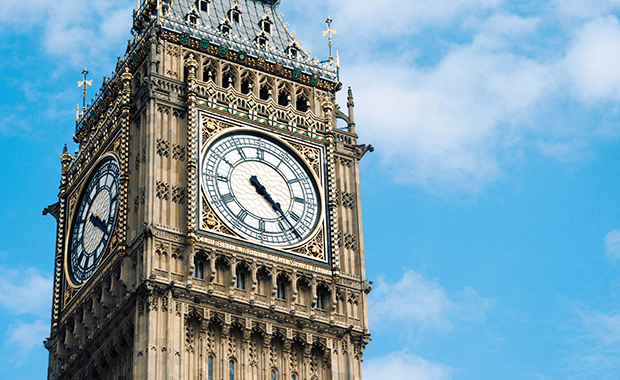The GK Insights team goes through some of the previous month’s biggest policy developments, focusing on actions taken by regulators to help consumers through the current economic climate. For more information, please get in touch via info@gkstrategy.com
Sunak’s fintech vision
Rishi Sunak’s premiership could well see greater emphasis placed on the findings of the Kalifa Review, which had made the definitive assessment of the UK’s fintech sector. As Chancellor, Sunak enthusiastically approved of many of the review’s recommendations and signalled his commitment to their implementation. Last year, while speaking at Fintech Week, Sunak threw his support behind new initiatives derived from the review to boost fintech.
One of these initiatives was the establishment of a Centre for Finance, Innovation and Technology (CFIT). At Spending Review 2021, HM Treasury confirmed it had allocated £5 million to fund the creation of the CFIT. The body is intended to facilitate collaboration between the tech and finance sectors, as well as the key players expected to drive legislation and regulation affecting the sector; the Treasury and the Financial Conduct Authority (FCA).
The CFIT Steering Committee (SteerCo) chaired by Ron Kalifa himself, has met regularly throughout 2022 to assess and address perceived opportunities and barriers to growth within the UK. Crucially, the body’s recommendation on a future strategy will be largely led by industry stakeholders rather than the FCA or HM Treasury.
Although the final strategy is far from certain, it is notable that both Sunak’s Treasury and the FCA were instinctively minded towards light-touch regulation. There is agreement on all sides that policy-makers and regulators should explore how technology and the need for regulation (as well as regulatory reporting) can be balanced effectively. It is likely that the FCA will prioritise the creation of a stable, rather than reactionary, regulatory environment where competition will not be stifled.
Political and regulatory challenges
Unsurprisingly, Sunak’s personal views are unabashedly in favour of technological advancement:
“Our vision is for a more open, greener, and more technologically advanced financial services sector. The UK is already known for being at the forefront of innovation, but we need to go further. The steps I’ve outlined today, to boost growing fintechs, push the boundaries of digital finance and make our financial markets more efficient, will propel us forward. And if we can capture the extraordinary potential of technology, we’ll cement the UK’s position as the world’s pre-eminent financial centre.”
Nevertheless, political and regulatory realities are likely to slow the pace of Sunak’s technological revolution. Fintech companies have long warned that the UK is unlikely to become a technological superpower if the Competition and Markets Authority (CMA) takes a strict approach to merger control assessments. Instead, they have called for a more flexible approach to enable consolidation within the fintech market (particularly if the ambitions for UK-based companies to become European or even global players are to be realised).
There have been calls from parliamentarians to pass the Digital Markets, Competition and Consumer Bill, which would facilitate a new digital competition regime and a Digital Markets Unit. Although these calls are motivated by a desire to ensure that the market power of Facebook and Google does not become entrenched. While this may prevent barriers to entry for some start-ups, a potential side-effect is that the mergers between homegrown fintech companies may be made painstakingly difficult. In recent years, we have seen the CMA’s stance on mergers and acquisitions harden as public sentiment and political scrutiny has turned to the tech sector. The CMA and other competition authorities in Europe are increasingly sensitive to consolidation efforts in the sector due to the perception that they have allowed too many controversial deals to be completed in the recent past, meaning that the CMA may choose to take more time in assessing whether certain deals are appropriate.
Addressing the skills gap
As Chancellor, Sunak was keen to emphasise the link between technological innovation and skills, by launching a Digital Strategy to create new jobs. The issue of skilled migration could cause Sunak some concern. Although Sunak is a staunch proponent of immigration controls, tech bosses have warned of a deficit in skilled workers since the UK’s withdrawal from the European Union, with many concerned that the skills gap has cost the UK economy tens of billions.
The Kalifa Review advocated for a number of policies that the then-Chancellor pledged to implement. In relation to immigration, this largely involved the scale-up of a visa scheme to encourage skilled overseas workers to join the UK’s tech sector. While the decision was largely welcomed, the government received some backlash from the sector for delaying the process until August 2022. Businesses meeting certain requirements can apply to sponsor individuals working in roles such as software development, engineering and science R&D. Successful applicants will be granted a two-year stay without further sponsorship. By contrast, temporary worker visas have a six-month maximum stay. After five years, applicants can apply for settlement.
However, Sunak has the unenviable task of balancing this policy with satisfying the demands of right-wing Conservative MPs and some of his own Cabinet ministers. The Prime Minister will be aware that the Home Secretary, Suella Braverman, played a significant role in destabilising an already fragile governing coalition after her visceral objections to Liz Truss’ plan to loosen immigration rules to attract high-skill workers from abroad.
Sunak’s room for manoeuvre is further limited by the levelling-up commitments that the Boris Johnson administration has made. A key pledge in the Levelling Up White Paper is to increase public investment in R&D ‘outside the Greater South East, by at least 40%, by 2030. Additionally, investment will be increased by at least one third over the Spending Review period. For instance, Chesire’s Hartree National Centre for Digital Innovation will be an area of focus, supporting the development of digital technologies, such as AI and quantum computing. Red Wall voters will be expecting investment in their constituencies and increased job opportunities for local workers.
However, not only is public spending set to tighten – casting doubt on whether Levelling Up pledges can be fulfilled – the current workforce may not have the requisite skills in the short-term to fill the tech vacancies (without drafting in overseas workers to fill gaps). This three-part problem could force Sunak to compromise on long held ideals regarding public spending or immigration. Ultimately, it means that Sunak’s vision of technological advancement is under serious threat right from the outset of his premiership.






